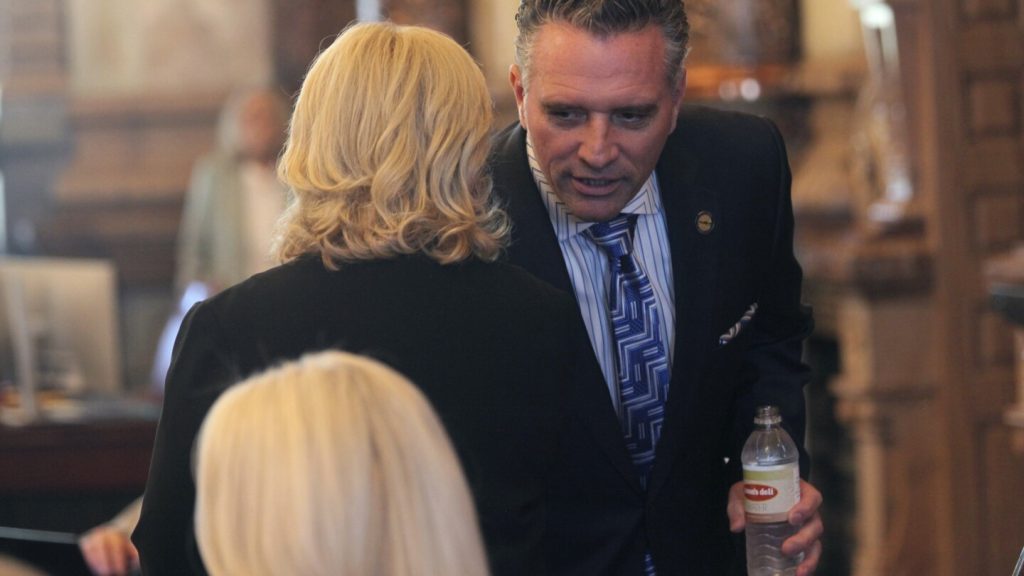The Kansas Legislature narrowly failed to override Democratic Gov. Laura Kelly’s veto of a $1.5 billion tax cut package. The Senate fell one vote short of the required two-thirds majority, with three dissenting Republican senators joining all 11 Democratic senators in voting no. Despite a strong vote in the House to override the veto, the Senate’s failure means that lawmakers may end their session without significant tax cuts for the second year in a row. Gov. Kelly cited concerns about the plan being too expensive and potentially leading to future budget problems for the state.
Republican leaders argued that the difference between the vetoed tax plan and a proposal worth roughly $1.3 billion over three years was minimal, suggesting that both plans would have similar effects on the state budget over the long term. However, Kelly and dissenting Democrats raised concerns about the fairness of the plan, particularly in terms of the tax rates for the wealthy. The proposed plan would have reduced the highest income tax rate to 5.55% from 5.7% and aimed to provide relief for working class taxpayers. The controversial tax plan has sparked debate among legislators, with differences in opinion on its potential impact and benefits.
With the Legislature scheduled to adjourn for the year, Republican leaders have stated that they do not intend to make another attempt to pass a tax bill before the end of the session. Senate tax committee Chair Caryn Tyson announced that the tax process was concluded, emphasizing that the current plan was the final opportunity for tax reform this year. Gov. Kelly had previously vetoed Republican tax plans in 2023 and in January, expressing concerns about the impact on the state’s budget and the tax rates for different income groups.
Despite the failed attempt to override the veto, some legislators are optimistic about the progress made on tax reform. Dissenting GOP Sen. Dennis Pyle suggested that the House and Senate could negotiate a new tax plan based on Kelly’s proposal and move quickly to vote on it. Top Republicans had shifted away from a single-rate income tax proposal and both vetoed bills included exemptions for Social Security benefits. The vetoed bill also aimed to reduce property taxes for public schools and eliminate a sales tax on groceries, measures supported by the governor.
The Governor has expressed a willingness to call a special session if necessary to address tax relief measures. Some lawmakers believe that there is still room for negotiation and improvement in the tax plan to benefit all Kansas residents. The proposed tax cut package included provisions to benefit retirees, reduce property taxes, and eliminate a sales tax on groceries, reflecting a multi-faceted approach to tax reform. As legislators continue to debate the best path forward for tax policy in Kansas, the failed override vote highlights the challenges of reaching consensus on complex financial issues in a politically divided environment.


